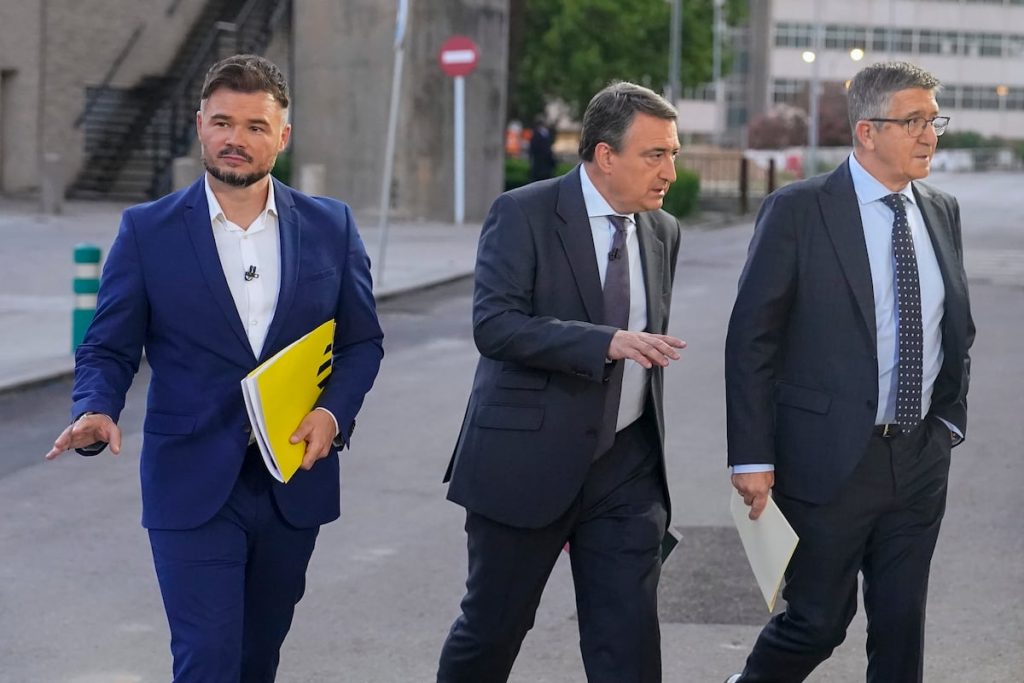In its 140-year history, the Spanish Socialist Workers’ Party (PSOE) had never held a Federal Committee meeting intended for only one person. The meeting scheduled for this Saturday is not meant to discuss political strategies or send messages to supporters. Instead, the focus will be on Pedro Sánchez, the party’s leader, who will not be present but will be the main subject of the meeting. Leaders, including those who have been critical of Sánchez, will publicly show their support for him and urge him not to resign, in response to the campaign against his wife that led him to consider stepping down. Many see this as a battle to defend democracy and prevent a toxic atmosphere from taking over.
The emotional toll of politics and personal attacks on leaders has been a central theme in discussions about Sánchez’s potential resignation. While public statements from party members advocate for him to stay, privately some acknowledge that they understand his personal reasons for wanting to step down. The day’s events are expected to be more emotional than strategic, playing on Sánchez’s appeal to the progressive base. A massive demonstration is planned in support of Sánchez, with thousands expected to gather outside the party headquarters in a show of solidarity.
The party leadership is focused on persuading Sánchez to stay, with no discussion of a backup plan if he decides to resign. The abrupt loss of his leadership would pose challenges, as his popularity and electoral success are unmatched within the party. While the possibility of a new socialist candidate assuming the presidency is being considered, the priority is to convince Sánchez to stay. The efforts to keep him in office are backed by government officials, party leaders, and allies, who all seek to prevent a political crisis.
The international support for Sánchez’s leadership is highlighted by a call from former Brazilian president Lula, who praised Sánchez’s importance for Spain, Europe, and the world. Sánchez is seen as a beacon of resistance against right-wing forces in Europe, with favorable economic indicators and strong support within the European social democratic community. His departure would deal a significant blow to the progressive movement in Europe, which is already facing challenges from conservative and far-right parties.
The opposition is preparing for a potential change in leadership, with figures like Alberto Núñez Feijóo positioning themselves as potential successors. Sánchez’s decision to stay or resign will have far-reaching implications, as the PSOE faces a delicate moment with regional and European elections on the horizon. Despite the pressures, Sánchez will need to weigh the calls for him to stay against the risks of a leadership crisis. The message from his supporters is clear, but ultimately the decision lies with him. The coming days will be crucial in determining the future of the PSOE and its leadership.















